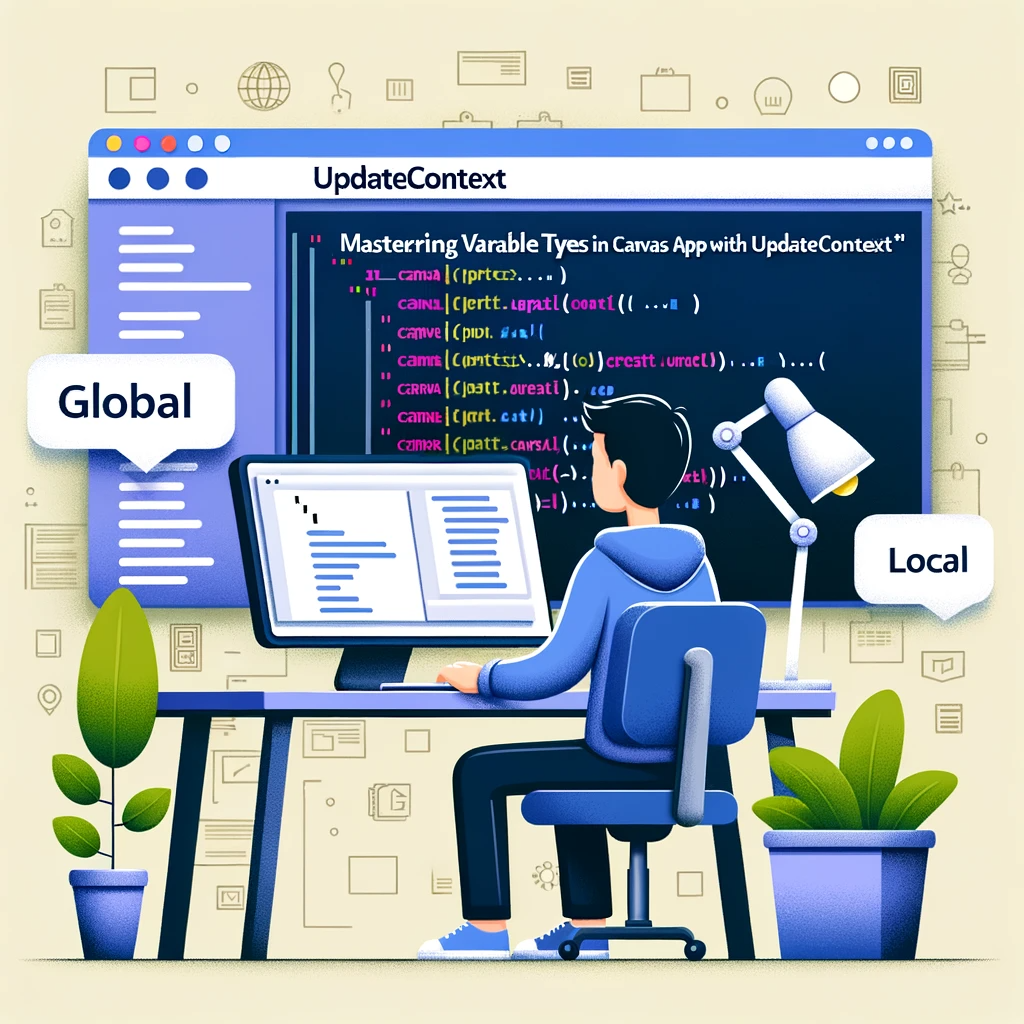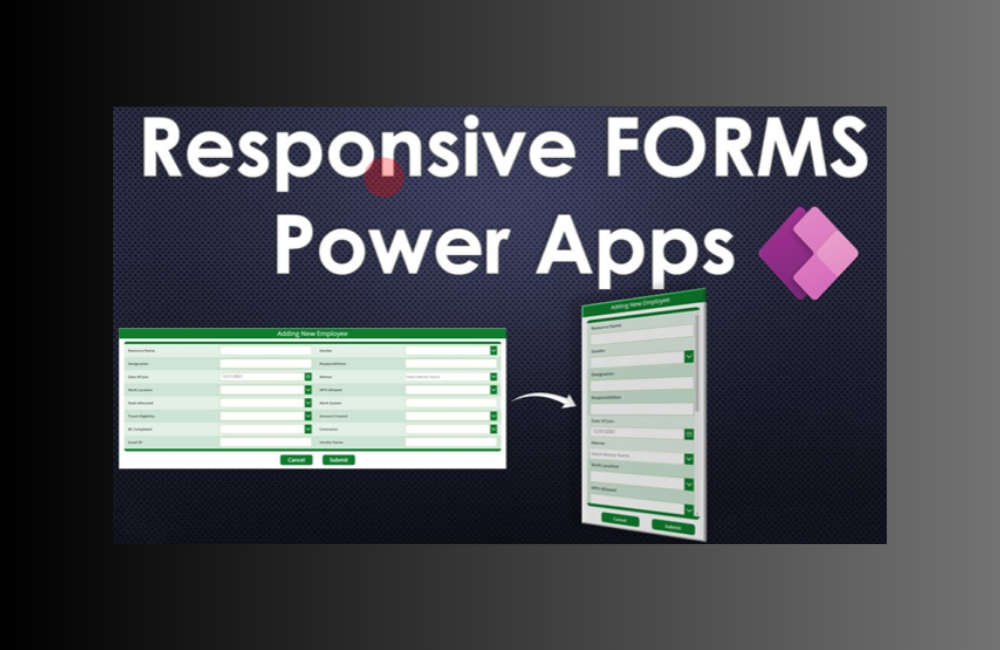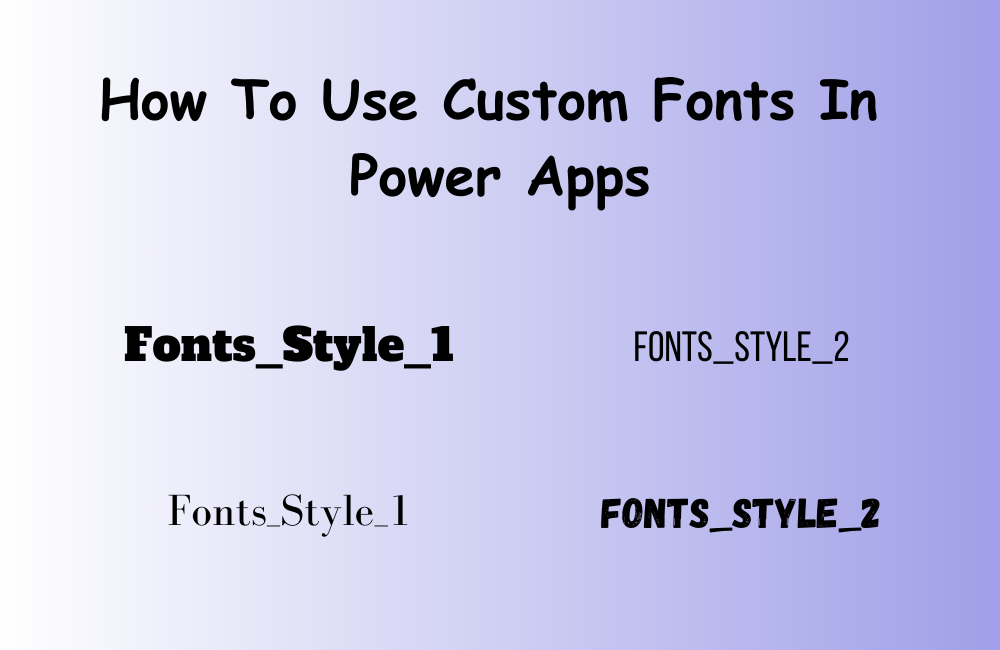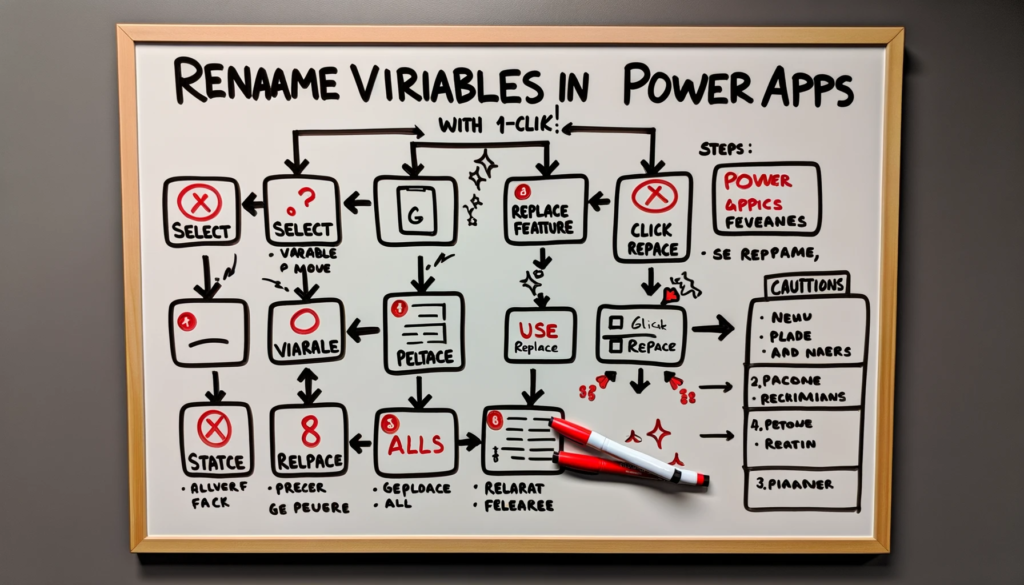Introduction:
In today’s Power Apps landscape, mastering ‘Canvas Apps UpdateContext Variables’ is fundamental for anyone aiming to craft efficient Canvas Apps. This guide delves into the intricacies of variable scopes, demonstrating their application using the powerful UpdateContext function and more.
Harnessing the Power of Canvas Apps UpdateContext Variables
The scope of a variable fundamentally governs where it can be invoked within the app. To enhance app performance and readability, it’s pivotal to discern whether a variable should be global, local, or one-time in nature. The scope choice ultimately hinges on where you intend to utilize the variable.
| Variable Type | Declaration Method | Scope |
|---|---|---|
| Global | Set Function | Accessible throughout all app screens |
| Local | UpdateContext Function | Limited to a single app screen |
| One-time | With Function | Restricted within the WITH function |
Practical Usage of Canvas Apps UpdateContext Variables
Global Variables (via SET function)
Set(
globalTaxAmount,
Value(input_Subtotal.Text) * 0.13
);
Reference: Set function in Power Apps
Local Variables (leveraging UPDATECONTEXT function)
UpdateContext(
{
localItemsTotal: 0,
localConfirmPopup: false,
localOrderMode: Blank()
}
);Reference: UpdateContext function in Power Apps
One-Time Variables (using WITH function)
With(
{tempContact: LookUp('Order Records', ID=ThisItem.ID)},
Concatenate(
tempContact.FirstName,
" ",
tempContact.LastName
)
);Reference: With function in Power Apps
Deciding Between Global or Local: Canvas Apps UpdateContext Variables Insights
Envision a sprawling canvas app, spanning multiple screens, predominantly reliant on global variables. In such a scenario, any change to a global variable’s value mandates an exhaustive review of its repercussions across all screens. Misjudging variable scope could inadvertently introduce software bugs.
On the contrary, local variables, constrained to a single screen, simplify this assessment. This granular approach paves the way for crafting higher-quality code at an accelerated pace. One-time variables further optimize performance by releasing memory post-execution.
Relevant Data:
In the realm of Power Apps development, “Canvas Apps UpdateContext Variables” is a pivotal concept to grasp. Mastery over this topic not only ensures enhanced code quality and optimized performance but also positions developers at the forefront of demand. With the right knowledge, one can effectively reduce software bugs and elevate app readability, explaining why many professionals seek tutorials and workshops on the subject.
Conclusion
Power Apps presents developers with a plethora of functionalities, but mastery lies in the nuances. Properly harnessing variables, especially with the UpdateContext function in canvas apps, is paramount. If challenges arise or further assistance is required in leveraging “canvas app updatecontext” or related technicalities, feel free to reach out to us. At SoftwareZone365, we’re poised to deliver bespoke solutions, tailored to your specific needs.






